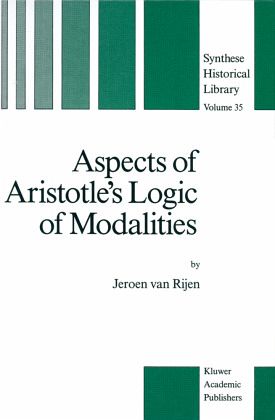
Aspects of Aristotle's Logic of Modalities
Versandkostenfrei!
Versandfertig in 1-2 Wochen
115,99 €
inkl. MwSt.
Weitere Ausgaben:

PAYBACK Punkte
58 °P sammeln!
Aspects of Aristotle's Logic of Modalities


Rechnungen
Bestellstatus
Retourenschein
Storno